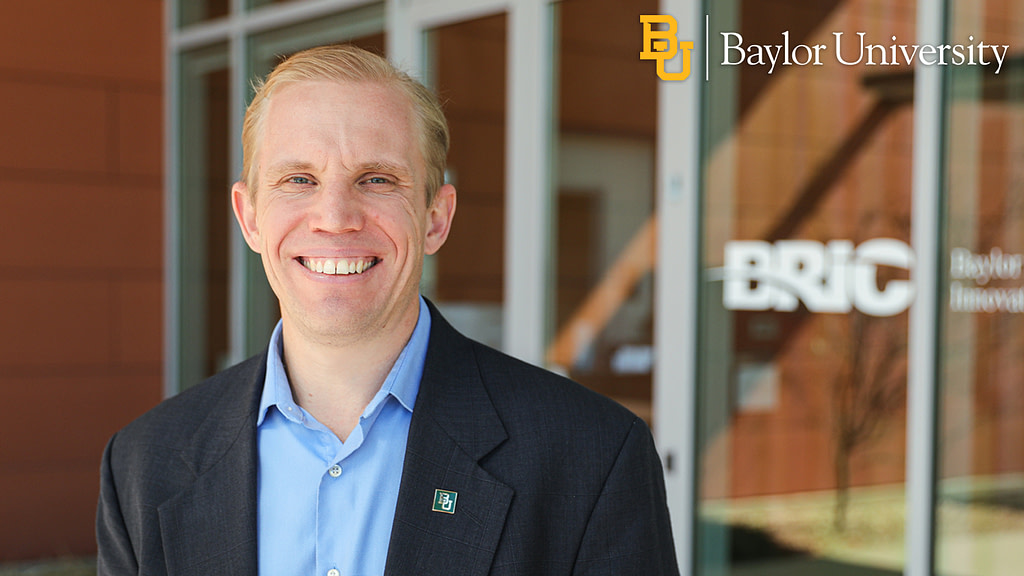Benjamin Ryan, Ph.D., clinical associate professor of environmental science at Baylor, is an expert in communicable and noncommunicable diseases, community resilience, humanitarian assistance and disaster risk reduction. He works with the lab in a practitioner and policy-focused role. Ryan has worked with the World Health Organization and the United Nations on issues related to COVID-19 and other challenges.
“The importance of this cannot be under played. The lab provides the opportunity for us to better understand the COVID-19 situation, rapidly respond to outbreaks and evaluate effectiveness of safety measures,” Ryan said. “Having results within hours using this gold-standard COVID-19 testing accuracy is an important tool to protect both the University and local community.”
The new lab provides the ability to test 100 percent of the student body each week. Baylor’s spring retention rate of students held at 95 percent, indicative of the confidence students and families have in the University’s ongoing comprehensive COVID-19 measures to ensure a safe learning community.
MLD, which offers an extensive array of FDA-approved tests beyond COVID-19, has provided a majority of Baylor’s more than 160,000 tests since the University’s resumption of on-campus learning last fall. CEO Justin Simons said the state-of-the-art lab facility is emblematic of the companion fit between MLD and Baylor.
“Through MLD’s collaboration with Baylor University Research, we have developed a diagnostic framework that enables advanced studies and analyses of COVID-19 and a host of other molecular science initiatives,” Simons said. “We could not be more thrilled about the potential this partnership brings.”
Ryan said the lab allows researchers to rapidly identify pathogens responsible for food-borne diseases and other contagious viruses. This supports future environmental public health practice and research.
“The ability to provide this type of situational awareness and research capability is vital to help identify the cause of disease and prevent additional illnesses,” Ryan said. “From a disaster risk reduction perspective, which is an all-hazards approach to mitigate risks, the lab can be used to evaluate emerging novel viruses, provide the early detection required for biothreat agents, guide surveillance activities and support profiling of antimicrobial resistance.”
Walter “Sparky” Matthews, BA ’92, M.D., joined the Baylor faculty last fall as clinical professor in the honors program after a decorated career in the U.S. Air Force, where he served as 1st Surgeon General of the United States Space Force and retired at the rank of colonel. A faculty member who teaches in addition to assisting Baylor’s COVID-19 response, he sees firsthand the impact of the partnership and MLD’s campus presence.
“The cooperation has truly been something special,” Matthews said. “I’m used to public-private partnerships in the Air Force, and this is a significant private-private partnership that gives us the capacity to to actually test every single person in the Baylor community — 17,000 tests per week. When my students are able to attend an in-person class, it’s because of the testing we’ve done to protect our population, and MLD is a major facilitator of that. To have them here only enhances the safety of our Baylor community and Waco community.”
Michael Muehlenbein, Ph.D., department chair and professor of anthropology, assisted in the process of Baylor’s acquisition of the lab and praised what he sees as the University’s wise investment.
“With a rapid turnaround time for results, we can identify cases, isolate them more quickly to prevent further virus transmission, and begin contact tracing sooner,” Muehlenbein said. “We can also partner with community organizations to assist in testing McLennan County residents outside of Baylor with a goal of helping to serve the underserved population that is at higher risk of infection, hospitalization and death for a variety of reasons.”
Muehlenbein’s expertise in endocrinology and immunity regarding humans and non-human primates has made him a local leader in the fight against coronavirus. He helped design the University’s testing protocols as part of Baylor’s COVID-19 Task Force and worked with Erich Baker, Ph.D., chair of Baylor’s computer science department, to gather a range of information about how the virus has influenced individual behavior in an effort to provide local community leaders with insight in decision making.
Furthermore, the lab expands Baylor’s ability to attract top research talent, support additional projects and strengthen the areas of health as well as human flourishing, leadership and ethics — two of the key initiatives of Illuminate, Baylor’s strategic plan.
“The lab plays a central role in helping to protect our community,” Muehlenbein said. “It also facilitates rapid and extensive monitoring for other pathogens, as well as chronic conditions, as the instrumentation can be configured for diagnostics of many diseases and disorders. This assists in our research endeavors and will attract new faculty talent. Most importantly, it facilitates Baylor’s mission of compassion as we try to understand and improve the human condition.”









